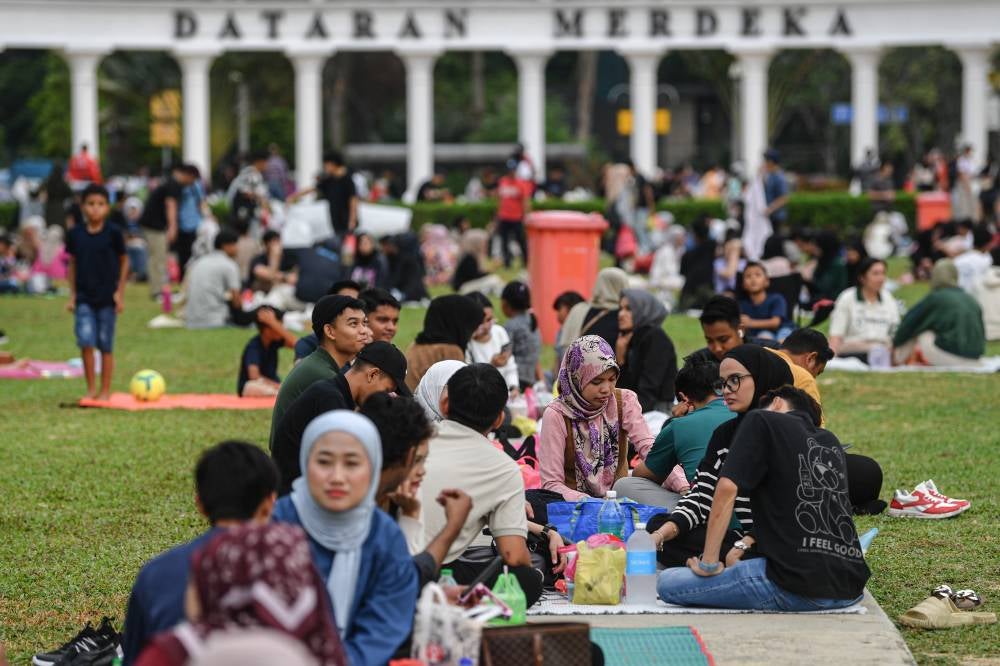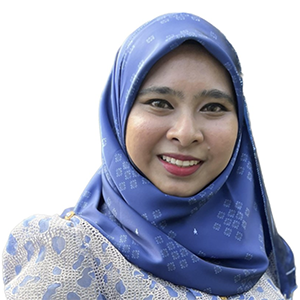Ramadhan Reflections: Embracing compassion and inclusivity in Malaysia

As the crescent moon heralds the arrival of Ramadhan, millions of Muslims around the world embark on a sacred journey of spiritual renewal and reflection. This holy month offers an invaluable opportunity for Muslims to strengthen their connection with Allah through fasting, prayer, and charity.
However, in Malaysia—a melting pot of cultures and religions—Ramadhan should be far more than just a religious observance; it should be a bridge fostering mutual respect and understanding. It should never become a vehicle for division or a political instrument to alienate Muslims from their non-Muslim compatriots, be it at schools or in other public spaces.
In Malaysia, where the fabric of society is intricately woven with diverse threads of ethnicity and belief systems, Ramadhan has the potential to unite rather than divide. Our shared values of compassion, charity, and introspection should be the focal point during this month, regardless of faith, rather than any political agenda that seeks to exploit religious practices for mere gain.
The perversion of Ramadhan into a tool of division not only contradicts the very principles it stands for but also fractures the harmony that Malaysians have worked so hard to build.
Fasting in Ramadhan is a profound act of worship that enables Muslims to develop self-control, empathy for the less fortunate, and a deeper consciousness of God. It is a time when the hustle of day-to-day life gives way to contemplation, spirited nights of prayer, and an earnest quest for forgiveness and divine mercy.
Political scheming shouldn't detract from this spiritual purge and the enhanced sense of community. When Ramadhan is leveraged to drive a wedge between Muslims and non-Muslims, or when it is politicised to foster dissent among Muslims themselves, the very essence of this blessed month is undermined.
Instead, the 30 days should be practice for politicians and people in positions of power to abandon divisive rhetoric to represent peace (salaam).
Moreover, the rich tradition of 'buka puasa' offers a splendid opportunity for Muslims to extend a hand of friendship across religious lines. Rather than cloistering themselves, Muslims are encouraged to share the spirit of Ramadhan with their neighbours of all faiths, thus reinforcing the bonds that underpin our multicultural nation.
It is in the sharing of a meal, the exchange of Ramadhan greetings, and the universal language of kindness that we can build bridges that stand firm against the divisive winds of politics. And it should not just be applied to fellow Muslims.
In Islam, both within and outside of Ramdhan, the principles of tolerance and respect are emphasised, including towards non-Muslims. Individuals who do not adhere to the Islamic faith are not obligated to participate in the fast. Islam teaches that religious obligations, such as fasting, are specific to Muslims; therefore, non-Muslims are free to eat and continue their daily activities as usual.
This allowance underscores the importance of harmony and understanding in multicultural communities, where individuals may observe different customs and beliefs. A non-Muslim eating in public should not affect the sensitivities of Muslims.
The need to meet social expectations is not what drives people to fast; rather, it is a spiritual act. The right for non-Muslims to lead their lives normally during Ramadhan is protected, and there is a general expectation that all Malaysians, regardless of faith, will show mutual respect for each other's practices and traditions.
The Malaysia we love and cherish is one where diversity is celebrated and where religious festivals become a rallying point for inclusivity rather than exclusion. It is imperative that political discourse respect this premise and that leaders, regardless of their beliefs, promote unity and understanding.
Let Ramadhan be a testament to our collective will to uphold the values of harmony, empathy, and shared humanity.
During Ramadhan, let us make a concerted effort to observe this holy month with the sanctity of intention that it merits. Let the prayers of the faithful reverberate in the mosques, let the streets fill with the spirit of generosity, and let our political conversations reflect the wisdom that is necessary to preserve the sanctity of this season.
As we attempt to improve our relationship with Allah through fasting and worship, let us also work to improve our relationship with our fellow Malaysians. Let us restate that the month of Ramadhan in Malaysia, and indeed everywhere else, should be a ray of hope and harmony rather than a chasm of conflict.
This Ramadhan, may it serve as a reminder to all of us of the tremendous spirituality and communal solidarity that it is intended to cultivate, transcending the sphere of politics to touch the hearts of every individual, whether they are Muslim or not.
Syaza Shukri, PhD, is an associate professor and the current Head at the Department of Political Science, IIUM. The views expressed in this article are the author's own and do not necessarily reflect those of Sinar Daily.
Download Sinar Daily application.Click Here!















